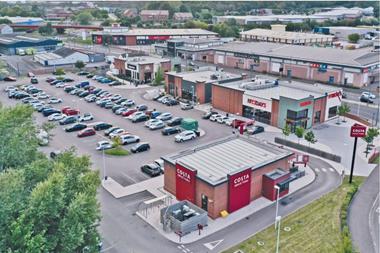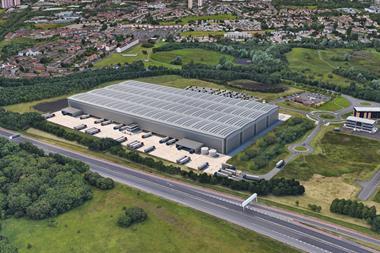Demand from occupiers for grade-A sustainable urban logistics space in strategic locations throughout the UK continues to rise.

However, the development of urban logistics faces increasing challenges because of the proximity of other types of development, and the consequent competition for sites.
Developers and planning authorities are frequently faced with having to make compromises between the provision of urban logistics space and the disruption it may bring to neighbours.
For developers, a particular issue lies in ensuring a scheme can be sympathetic to nearby residential developments. There is a stark dichotomy between the need from occupiers for 24/7 access to their units versus the transport and noise disruption this can bring to residents. Finding a compromise that is acceptable to the local authority and residents, while not negatively affecting business activity, is often a significant challenge.
Local authorities may demand limits on delivery times to avoid frequent overnight deliveries, but such measures can often be avoided through sensitive design such as ensuring that yards and loading bays face away from housing and by installing acoustic fencing.
Another key issue affecting land allocation in urban areas is the lack of utility infrastructure, especially power. This is not just an issue for urban logistics, but is more pertinent in urban areas where other power-hungry occupiers, such as data centres, also prefer to locate.
We find that local and national planning policy does not always gel with other policies
In west London, for example, there is a well-documented lack of power available, meaning that any new development requiring electricity in the next two to three years could face major issues. As a nation with a growing urban population, we need infrastructure projects to be prioritised to allow developers to deliver.
We also find that local and national planning policy does not always gel with other policies, such as those affecting ecology and transport. For example, some local authorities demand densification of urban logistics schemes, which drives increased scale and massing, increased transport movements and reduced car parking facilities. While this optimises the use of space, it makes the provision of biodiversity net gain obligations and acceptable levels of traffic movements very challenging.
These factors demand increased co-ordination and pragmatism from planning officers to ensure that a much-needed development can progress in a timely and efficient manner.
We also question the rationale of having a design review panel consider the aesthetics of a development at the very end of the planning process, once a scheme has been pretty much signed off.
So much urban logistics land has been lost in recent years as higher-value residential developments have encroached. As a consequence, we are now seeing more local authorities protecting employment areas as they realise the importance of this use class.
Although this is a complex issue, there should be no need for significant reform. It is much more about communication, compromise and pragmatism from all parties involved to ensure a balanced outcome for all stakeholders and the delivery of an increasingly important use class to support our growing urban population.
Richard Bains is managing director at Chancerygate
































No comments yet